
By
Raphael Santos
March 13, 2023
Updated
January 23, 2025
New tech ecosystems are emerging, and your tech career can take advantage of this boom
The commercial viability of renewable energy sources, such as solar, wind, and geothermal, has steadily increased in acceptance since 2018. We've analysed this promising cleantech 2.0 scenario in one of our articles.
Following that, there has been a notable increase in venture capital funding for renewable energy software startups. As a result, multiple businesses have created innovative technologies to produce new solutions, and the most funded ones are those prospering in the B2B sector.
From AI-driven demand management systems to predictive analytics platforms, renewable energy software startups are doing much more than reducing the environment's carbon emissions — they are creating innovative ways to align sustainability with business objectives.

Source: Frame Stock Footage/Shutterstock
In this article, we will look at five exciting ways these startups are influencing the technological landscape. We’ll also highlight several key tech roles these companies are employing for, as well as wise useful tips for joining this emergent field.
Increasing battery-lifetime
Conventional battery architecture can lead to various issues as it involves single MW-scale power conversion (identical control of all modules). One such problem is the lack of flexibility in controlling output voltage due to the fixed number of series-connected cells in a module.
The fault in one cell or module can bring down the entire system's performance, leading to safety concerns and loss of efficiency.
Furthermore, this type of battery architecture leads to restricted scalability options as it demands large-sized inverters for higher capacity needs. Therefore, alternative battery architectures with improved features are being explored for better functionality and performance.
One startup doing this is Element Energy, which has created an architecture capable of distributing and adapting power conversion to individual modules.
This allows for real-time monitoring, diagnostics, and control through cloud-based systems at a cost comparable to traditional battery management and power control systems.
The predicted 20% increase in global energy storage by 2030 will require implementing new investment solutions, according to BloombergNEF; and, energy management software as a whole will play an important role in this sector.
Tech Jobs: Battery Management System
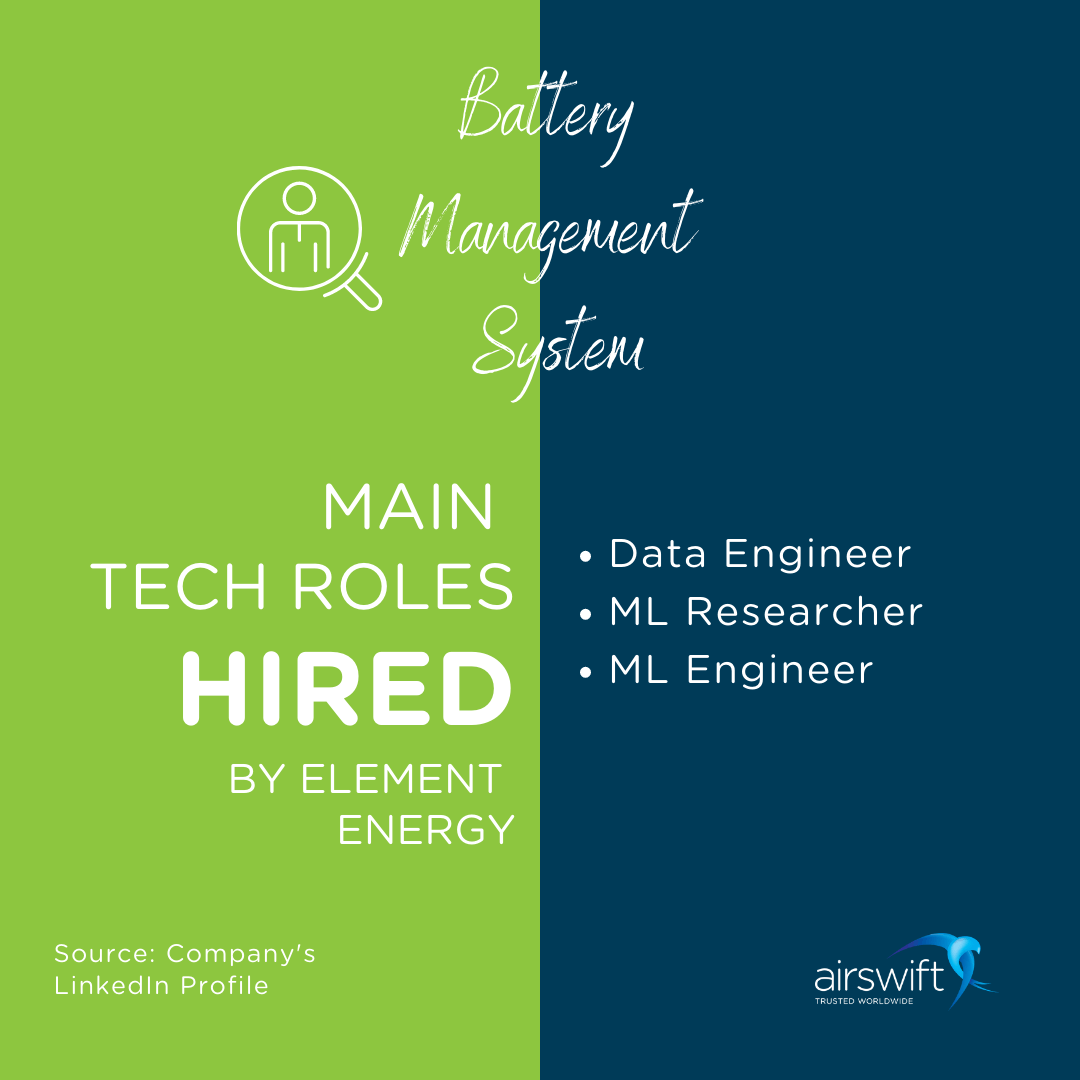
Maximising electricity production
Other innovative minds behind renewable energy software startups are embarking on initiatives that blend cutting-edge software with colossal datasets. Their mission? To unlock unprecedented insights into production, health, risk and financing in the wind and solar energy field.
That's the case of Clir Renewables with their energy asset management platform. The company helps clients generate maximum value from renewable power plants by offering a host of features - from data integrity and analytics to turbine engineering and financial reporting.
Their holistic approach ensures that asset health is always safeguarded, while power output is optimised for higher results.
Data-driven decisions that will increase efficiency and profitability while minimising risks are an irreversible step.
With such intelligence platforms becoming increasingly popular, we can expect significant improvements in renewable energy production and management in the coming years.
Tech Jobs: Energy Asset Management Platform
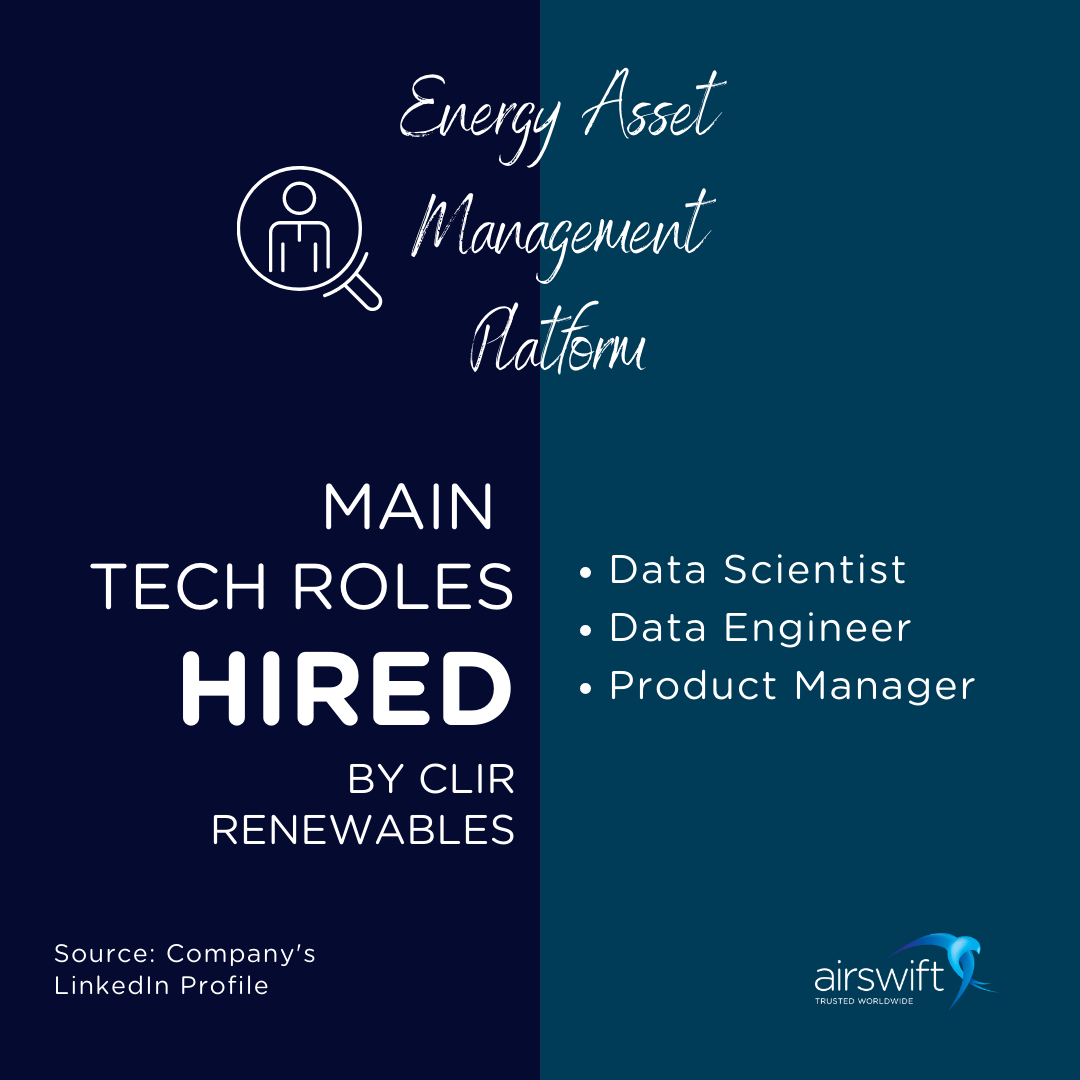
Optimising renewable investments
The use of renewable energy investment platforms not only accelerates the deployment of renewable energy projects but also opens up new opportunities for investors looking to diversify their portfolios.
By leveraging technology, these platforms make the process of financing and managing renewable energy projects more efficient and transparent.
Pexapark is a notable player in this niche. The company provides an optimised platform for investing in solar, wind, and hydro energy.
Its platform assists renewable investors in selling their energy and managing clients' transact power purchase agreements (PPAs) while monitoring energy risks.
This enables clients to structure power sales and complete power purchase agreement transactions with ease.
Tech Jobs: Renewable Energy Investment Platform
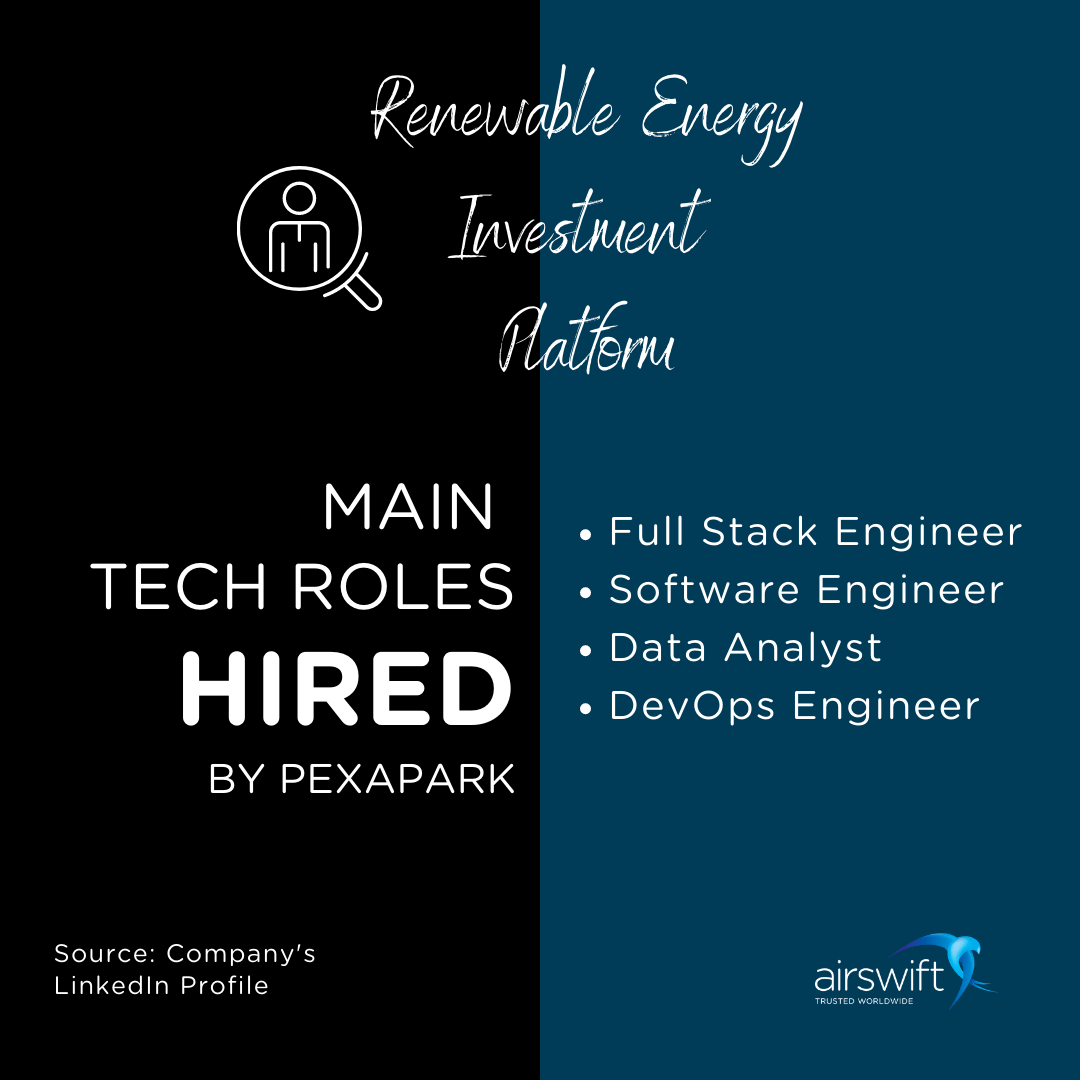
Connecting local energy communities
One of the challenges that renewable energy software startups face is connecting energy providers and consumers. This can be done by allowing users to securely buy and sell energy in a decentralised manner.
With these solutions, businesses can now easily access clean and renewable sources of energy without having to rely on traditional energy suppliers.
Exnaton, a Swiss startup, is gaining attention in the energy sector with its advanced renewable energy software. The platform allows power-sharing among households, thus enabling direct trading of solar energy between neighbors.
Exnaton's innovative billing platform is paving the way for utility companies to amplify their product offerings with green technology and with that delivering new services.
The company is empowering local communities to become more self-sufficient and independent.
Tech Jobs: Energy Sharing and Billing SaaS
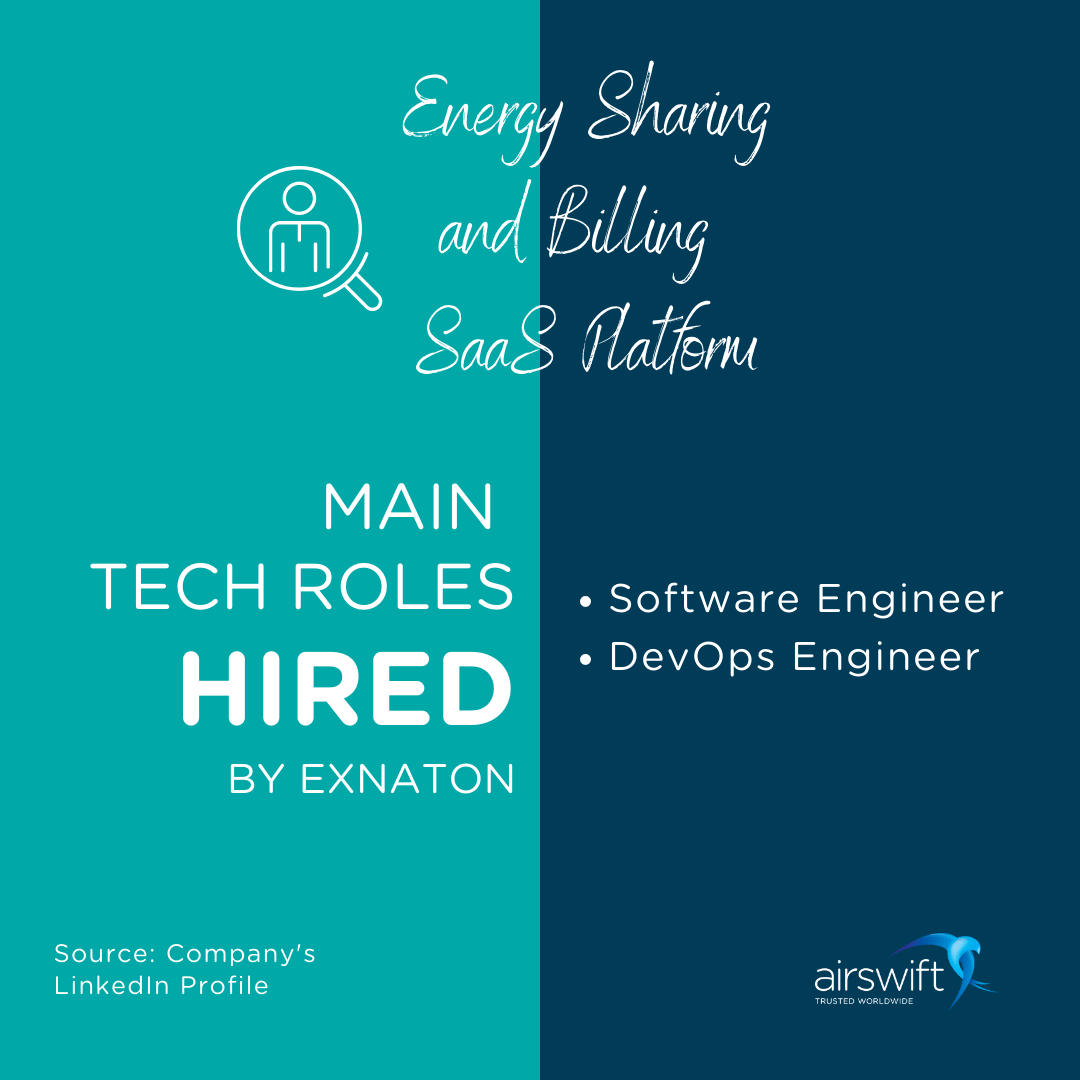
Streamlining operational control
Automation is another element that renewables energy software startups are bringing to the energy's transition equation.
Companies like Skylark Control are delivering software solutions to automating work processes for wind farm projects.
Its digital systems are able to foster team cohesion between operators on the ground, automate tedious tasks and grant operational transparency. Plus, it reduces the risk of human error for tasks such as turbine inspections, leading to more efficient and safer operations.
This type of renewable energy software allows wind farm operators to remotely monitor and control their assets in real-time, reducing downtime and increasing overall productivity.
It also provides predictive maintenance capabilities, allowing for early detection of potential issues before they become costly problems.
Tech Jobs: Automated Operational Control Software
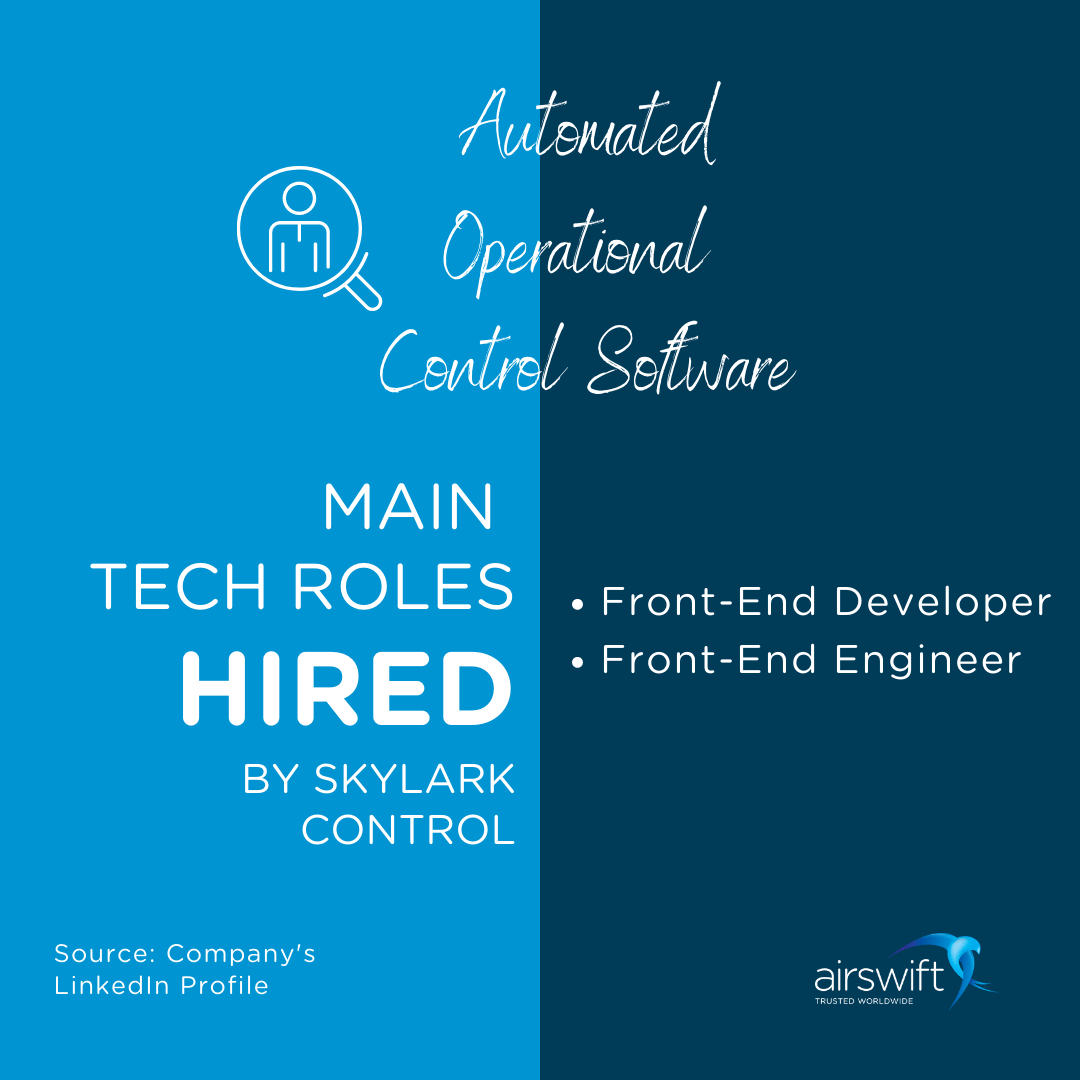
How to enter into this new ecosystem
Entering into the renewable energy software ecosystem requires a combination of technical know-how, industry knowledge, and green skills.
Aspiring tech workers must have a deep understanding of the energy sector and be able to identify gaps in the market that can be addressed through technology.
The graphics above show that machine learning technologies necessitate different job roles. Therefore, these specific tech professionals have good prospects for a thriving career in energy.
Typically, companies in this field look for individuals with degrees in computer science, electric engineering, statistics or mathematics. In many cases, employers may consider candidates lacking a formal degree if they can prove their expertise and experience.
Having at least four years of consolidated experience will definitely increase your odds of being among the major players in the industry. And, a word of advice: sharpen up your DevOps skills to further boost your chances!


